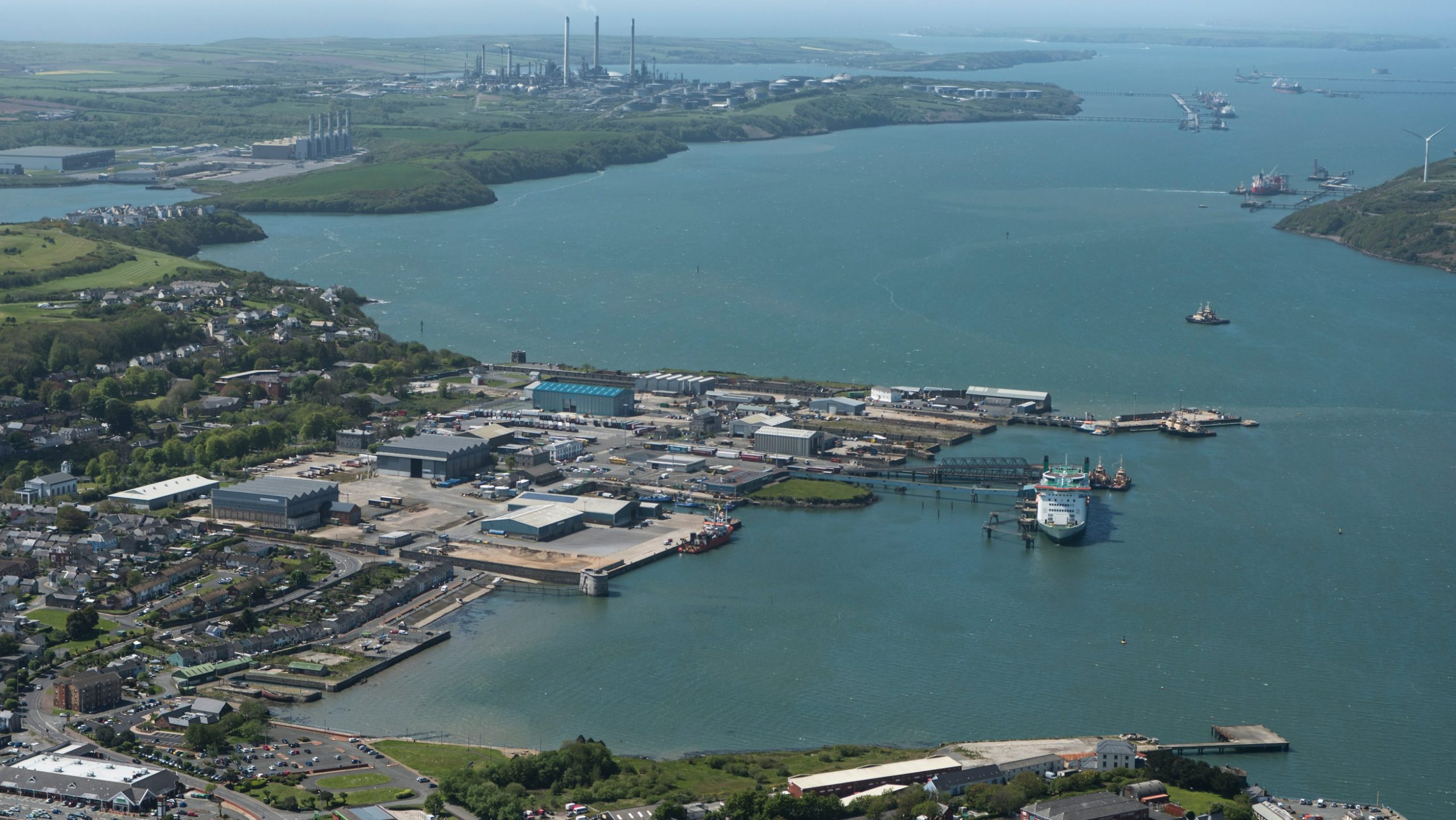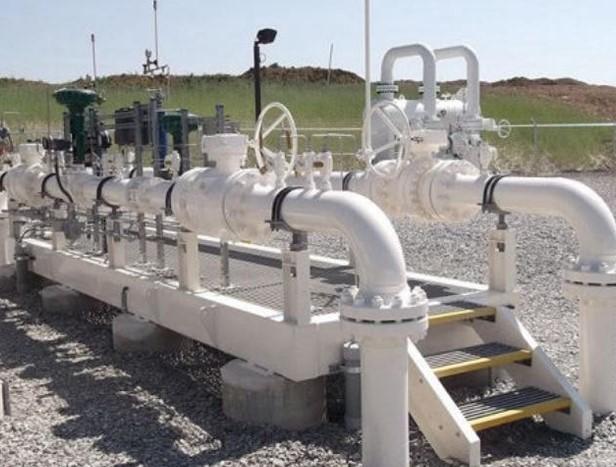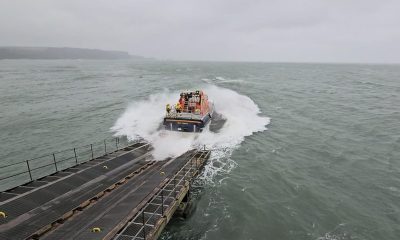Climate
High energy prices? Discover the natural low cost energy solution!

Celtic Green Energy reveals the benefits of Solar power.
In 2022, the Ukraine war caused an unprecedented energy crisis highlighting the UK’s dependence on Russian oil and gas that exposed our vulnerability to fuel security. Fuel prices rocketed, businesses folded and families were plunged into a cost of living crisis. The cost of fuel impacted on transport, raising food, heating, motoring and consumer goods prices. The general public became energy anxious and the Government had to step in to try to help the most vulnerable with new energy and fuel campaigns. This vulnerability to energy security prompted the Government into spearheading home grown renewable energy solutions with the extended development of windfarms, nuclear and solar. Advancements in technology and falling equipment prices has suddenly made solar power systems more affordable and increasingly attractive to consumers.

Renewable energy systems are widely seen as the way forward for a greener economy, lowering the impact on the environment, lowering carbon and reducing costs. A number of affordable solutions are now available to the general public and businesses that can help in the quest for climate change and energy efficiency. One example is where the Government is keen to promote the sale of electric vehicles to meet strict G4 net zero carbon goals, however with this interest, widespread confusion and anxiety follows. Never before terminology such as ‘range anxiety’ and ‘charge-point anxiety’ are appearing with the growth in electric vehicles and a weak infrastructure.
Fuel poverty within a poor housing stock is raising environmental concerns and the Government has addressed this issue with the availability of renewable energy solutions to the less fortunate on benefit or low income through the ECO4 grant scheme. This however has caused a ripple effect of scurrilous opportunists trading off FREE solar claims to all, when in fact, all but a few are actually entitled to the scheme. Even when those who are fortunate to qualify, find that the installation teams are shipped in from far away and leave with little or no support for the householder. When systems fail, they are left with little or no aftercare and are left facing a costly ‘white elephant’. Fortunately the industry regulator MCS Certification has strict guidelines for the Solar Power installation service and consumers are advised to check out their website for approved and registered suppliers.
Understanding the needs of the consumer and offering a strict code of conduct is essential for a reputable installer. West Wales based Celtic Green Energy has an enviable reputation serving the region for the last decade with renewable energy solutions for domestic, business and farming sectors. “We have people from all walks of life approach us with their energy concerns” quotes Sales Director Stuart Jupp. “What’s reassuring about my job is that I can give them genuine help to secure their future, their energy bills and relieve their anxieties. Anyone who uses electricity has potential to use solar power, although some properties may be ineligible due to prevailing conditions such as a ground floor flat!”
For the uninitiated, a solar power scheme is an installed system that includes a series of large flat photovoltaic panels that are placed on a southward facing roof that captures the suns rays – even on a cloudy day. The rays stimulate the photovoltaic cells to generate electricity that is then processed through an inverter ready to be fed into the property for use. Any surplus electricity is fed back to the national grid generating a small income, but it is now recommended that batteries are fitted to capture this latent energy and reuse at night.
As every property is different and every consumer has varying energy use, every solar panel system is tailored to the individual’s needs. A good starting point to specify the ideal scheme is based on a properties existing energy consumption where a system will be designed to match those needs. A Solar Surveyor will visit the site to identify the location, its constraints and discuss with the customer their objectives. A detailed quote and energy performance projection will be offered to the customer that will help their decision process. Most business installations will pay back their investment within 2 years, whilst domestic schemes will pay back the investment within 4 to 5 years – based on the prevailing energy costs.
The main use of energy during the winter months is to provide heat, whether that is gas, coal, oil or electric. The fossil fuels are on the Government’s hit list to reduce carbon emissions, so is keen to encourage the sale of Air Source Heat Pumps which are three times more energy efficient than other heat sources. These are large fan assisted units that sit outside the property and reverse condense cold air into heat (the opposite action of a refrigerator). The Air Source Haet Pump will then provide sufficient heat to power a conventional central heating system, but given the nature of the beast, operates slightly differently to the traditional method of a gas or oil system. As these require electricity to power them, they do consume energy 24/7 – however, with a solar power system, they can undertake this free of charge during the daytime and if a solar battery system is installed, can run free at night too.
Solar power is seen as the great saviour for many as it offers a perfect solution for the nation, businesses and the private individuals. With it’s green credentials, Solar is an ideal gateway product that provides power for many energy intensive applications such as heating, refrigeration and charging that ultimately helps reduce carbon, the environment and cut costs. The last year has seen a dramatic rise in the sales of electric vehicles, and a subsequent rise in the installation of home EV charging points. Add a solar system with solar batteries to the equation, and consumers will be able to charge their cars for free and dramatically cut the cost of their motoring.
Solar Batteries are now seen as the key essential accessory for any Solar power system as they help maintain provision of energy after dark. With advancements in technology falling off the back of the electric vehicle industry, there is now a wide variety of choice for batteries offering various degrees of performance, durability, cost, longevity and warranty. Any reputable installer will be able to advise the virtues of the right battery for the individual that best suits their lifestyle demands and budget.
Sum up…
Next time you awake to a fresh morning cuppa and look out to a sunny day, remember that sunshine could be providing you with free electricity to power your kettle – as well as your washing machine, cooker, television, charging your electric car and lots, lots more! The possibilities for solar power are endless, so if you are concerned about your rising energy costs and want to do something about it, make your next step be a phone call to Celtic Green Energy who will be able to advise you on the best way forward. You can call their energy help line 01269 500388 or learn more and visit their website at www.celticgreenenergy.co.uk
Here’s to brighter tomorrows and sunnier savings!
Business
Celtic Freeport secures £638,000 for strategic infrastructure projects

THE CELTIC FREEPORT has secured £638,000 in UK Government funding to support key infrastructure projects in Pembroke Dock and Port Talbot, helping to unlock future investment and accelerate development linked to floating offshore wind and clean energy industries.
The funding forms part of a wider £3.3 million package announced for sixteen Industrial Strategy Zone projects across the UK. The three successful Celtic Freeport schemes will focus on removing development barriers and preparing sites for future commercial activity.
Successful projects
Criterion Quay, Pembroke Dock — £213,000
Funding will support technical assessments required to enable floating offshore wind operations and maintenance (O&M) infrastructure at the site.
Talbot Wharf, Port Talbot — £265,000
Land remediation works will improve the viability of development plots, making them more attractive to companies within the floating offshore wind supply chain.
Port Talbot Marine Infrastructure — £160,000
Feasibility and design work will be carried out to refurbish two jetties, supporting future import and export activity and strengthening marine capability at the port.
Rt Hon Steve Reed MP, Secretary of State for Housing, Communities and Local Government, said:“From offshore wind manufacturing on the Humber to new clean energy facilities in Pembrokeshire, this backing for our freeports will generate real economic growth across the country. By tackling the barriers developers face early on, we’re helping to unlock significant private investment and create thousands of good jobs in clean energy and advanced manufacturing.”
Luciana Ciubotariu, Chief Executive of Celtic Freeport, said: “Today marks a significant milestone for Pembroke Dock and Port Talbot. Securing UK Government funding for these three projects accelerates the Celtic Freeport’s vision, supporting investment in port infrastructure that will enable floating offshore wind and the wider green energy transition.”
Business
Milford Haven-South Hook LNG gas pipeline gets green light

THE FINAL stage of a call for a 1.5km hydrogen gas pipeline in Pembrokeshire in connection with a previously granted scheme for green energy production has been given the go-ahead by the national park.
Late last year Pembrokeshire County Council approved a scheme by Zurich-based MorGen Energy Ltd, previously known as H2 Energy Europe, sought permission for a 1.5km six-inch 10-bar low-pressure hydrogen pipeline and associated Above Ground Installation at the Impala Terminal, Milford Haven to the South Hook Liquid Natural Gas (LNG) Terminal.
A supporting statement through agent Fisher German said the scheme crossed both Pembrokeshire County Council and the national park authorities, with a similar application before that authority.
It added: “The proposals form part of the West Wales Hydrogen project, where planning permission was granted on October 6, 2023, for the development of a new 20MW hydrogen production facility at the Impala Terminal (formerly Puma Energy) in Milford Haven.
“The approved hydrogen production facility which uses electrolysis to split water into hydrogen and oxygen, where the oxygen is a by-product of the process. The hydrogen production plant will produce 1,875 tons of hydrogen per year. Hydrogen will be distributed via high pressure vessels (40 ft. containers) to various customers in the closer vicinity, opening the hydrogen market to a large variety of customers.
“Hydrogen will also be distributed to the South Hook LNG Terminal and it is proposed that this will be via a new six-inch 10-bar hydrogen pipeline. The option to supply hydrogen to the South Hook LNG terminal via high pressure hydrogen containers was dismissed due to safety considerations at the terminal.
“This application therefore seeks planning permission for a section of below ground hydrogen pipeline within the jurisdiction of Pembrokeshire County Council, which comprises the north part of the route from the hydrogen plant at Impala to the South Hook LNG Terminal, alongside an AGI at the Impala Terminal.”
An officer report accompanying that approval said the southern part of the proposed pipeline was within the jurisdiction of the Pembroke Coast National Park Authority.
A national park officer report for that part, recommending approval, said its section of the pipeline “is a linear parcel of land comprising approximately 0.994 hectares,” adding: “It is mainly the location of a disused railway, now overgrown with scrub and grassland, in the open countryside.”
It added: “The development site is cross-boundary, situated primarily within the jurisdiction of the Pembrokeshire Coast National Park Authority (the south-west extent), with a small section of the proposed pipeline (and an above-ground installation (AGI)) within the Pembrokeshire County Council (PCC) LPA area (the north-east extent).”
The national park side was conditionally approved by planners.
Climate
Thousands of green jobs promised — including in Pembrokeshire scheme

A MAJOR boost for Wales’ renewable energy sector could bring thousands of new jobs after a record number of projects secured UK Government backing — including one development in Pembrokeshire.
Twenty large-scale renewable energy schemes across Wales have been awarded contracts in the latest Contracts for Difference (CfD) auction round, providing long-term price guarantees for electricity generation and allowing construction to move forward.
The successful projects include five onshore wind farms, 12 solar developments and three tidal energy schemes, with a combined capacity of more than 530 megawatts.
Among them is the Pembrokeshire Solar Park, a proposed 9.9MW solar development which could contribute to local energy generation and economic activity in the county.
Welsh Government ministers said the projects together could create thousands of green jobs while helping Wales meet its carbon reduction targets.
First Minister Eluned Morgan said: “I am delighted these projects have been successful in the latest auction round. As well as meeting vital targets to reduce carbon, onshore wind and tidal energy bring major economic benefits and high-quality jobs to Wales. The Welsh Government is committed to ensuring Wales is at the forefront of the green energy revolution.”
Nearly all available UK tidal funding in this auction round — 99.65% — was secured by Welsh projects, strengthening Wales’ position in marine energy development.
Rebecca Evans, Cabinet Secretary for Economy, Energy and Planning, said improving planning certainty had been key to attracting investment.
She said: “We know how important clarity and certainty are for developers, which is why we are working hard to speed up the planning process for major infrastructure projects. Our new legislation and our investment in capacity building is already making a difference.”
The Welsh Government said the developments will also create supply-chain opportunities for local businesses across Wales.
While the majority of projects are located outside west Wales, the inclusion of the Pembrokeshire scheme highlights the county’s continuing role in the transition toward renewable energy, alongside existing and planned marine and hydrogen initiatives around the Milford Haven Waterway.
The Contracts for Difference scheme is the UK Government’s main mechanism for supporting low-carbon electricity generation, providing developers with a guaranteed price for power over a fixed period to reduce financial risk and encourage investment.
Further details about timelines for individual projects are expected to emerge as developers progress planning and construction phases.
-

 News7 days ago
News7 days agoHoax 999 call sparks massive lifeboat and helicopter rescue — man arrested
-

 Crime7 days ago
Crime7 days agoWest Wales man jailed for murder of five-month-old baby
-

 Entertainment7 days ago
Entertainment7 days agoYouth theatre production supported by Pembrokeshire Coast National Park Authority
-

 Farming7 days ago
Farming7 days agoHigher welfare farming benefits millions of animals in Wales
-

 Business7 days ago
Business7 days agoPembroke Power Station marks 10,000th turbine start
-

 Crime7 days ago
Crime7 days agoPembroke Dock man admits sending sword death threat message
-

 Crime7 days ago
Crime7 days agoMan given suspended sentence after assault and damage offences
-

 Crime7 days ago
Crime7 days agoHaverfordwest woman banned from road after second drink-drive conviction





























